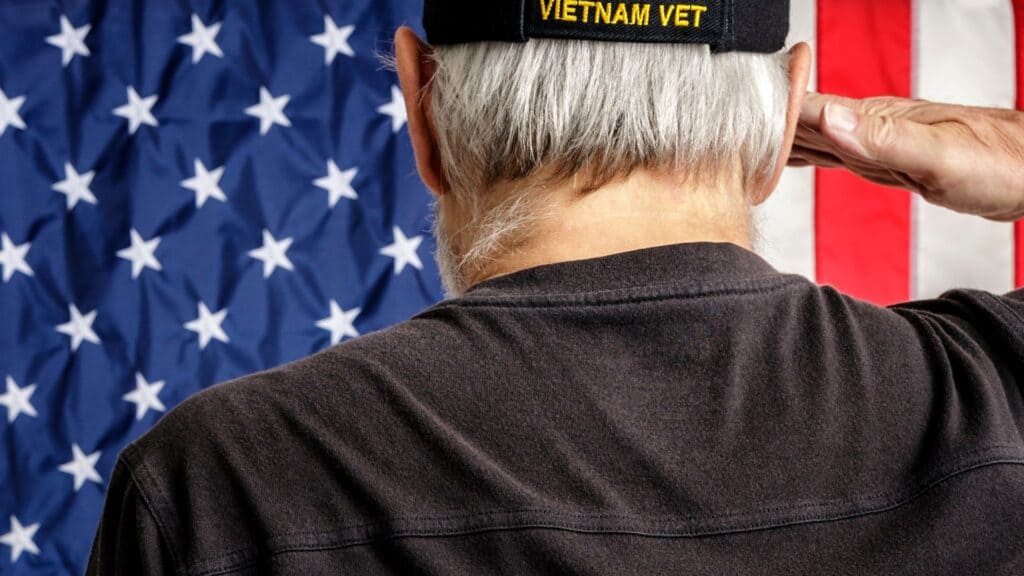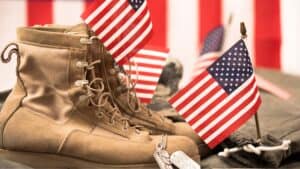07/08/2023
Help For Veterans Exposed To Toxic Chemicals On Okinawa

Deuterman Law Group’s Veterans Disability Team recently helped a Vietnam veteran receive a total disability rating, decades after being exposed to toxic chemicals on Okinawa and later developing prostate cancer.
Veterans Exposed To Toxic Chemicals On Okinawa
The former soldier, who was diagnosed with prostate cancer in 2016, had previously been denied multiple times for disability benefits by the Department of Veterans Affairs (VA). Our team was able to show that the client’s time on Okinawa and his participation in Operation Red Hat was at least as likely as not responsible for the development of the cancer three decades later.
It was an important victory for the client, but also for other service members stationed on Okinawa in the 1960s and 1970s, when the island was used to store defoliants and other toxic chemicals. These chemicals include the key components used to make Agent Orange.
While soldiers who were exposed to Agent Orange and other chemicals in Vietnam automatically qualify for certain disabilities like prostate cancer, Okinawa vets face a much tougher battle when trying to prove to the VA that their cancers and other health problems are service connected.
As ProPublica reported:
“Anyone who set foot in Vietnam during the war is eligible for compensation if they become ill with one of 14 cancers or other ailments linked to Agent Orange. But vets with an array of other illnesses where the connection is less well established continue to push for benefits. And those vets who believe they were exposed while serving elsewhere must prove it — often finding themselves stymied.”
That toxic chemicals were stored on Okinawa is not in dispute. In January 1971, the American government embarked on Operation Red Hat, which it deemed “one of the most difficult operations ever accomplished by the United States military forces.” The operation, which was detailed in a military public relations video, involved the moving of 13,000 tons of toxic munitions from Okinawa to Johnston Atoll.
DLG’s client moved barrels of chemicals as part of Operation Red Hat. He even received a certificate commemorating his participation, and this ended up being a key piece of evidence in his VA Disability claim. It provided military documentation that he handled the dangerous chemical barrels – proof many other sick Okinawa veterans don’t have.
Since 2011, The Japan Times has published accounts of “hundreds of veterans [suggesting] Vietnam War defoliants were stored, sprayed and buried throughout the island.” Journalist Jon Mitchell has reported on the issue in Japanese and English, and maintains a website about Agent Orange and military defoliants on Okinawa.
In 2013, Japanese workers doing some redevelopment on a soccer park on the site of former U.S. base uncovered barrels of chemicals that had been buried. Independent testing by Okinawa City officials showed the drums and soil and water surrounding them contained high levels of dioxin, “a toxin known to cause cancer, reproductive and developmental problems, immune system damage and hormone imbalances,” according to news reports.
To bolster the evidence in this client’s case, our DLG VA Disability team had the original Japanese government documents and lab reports about the buried barrels translated. The translation work was done by a group of Japanese law students at Duke University School of Law.
The students translated about 20 pages of reports, including diagrams and maps. Our team also included evidence from a 1970s era military operational report that referenced “radiologic material on Okinawa.” This particular document had not previously been considered in any other Okinawa toxic chemical VA Disability claims decision.
In presenting the client’s case to the VA, his DLG attorney also refuted claims by the government’s top expert on herbicides — Alvin Young, nicknamed Dr. Orange. “Over the years, the VA has repeatedly cited Young’s work to deny disability compensation to vets, saving the government millions of dollars,” according to a ProPublica investigation. But as our team pointed out in this client’s case, most of the research Young cites is his own, not that of other researchers and scientists.
It is our hope that the evidence our team cited and their strategy in structuring their client’s appeal will also help other Okinawa vets in their VA Disability claims.
If you’re an Okinawa veteran or you’re an advocate, you should not rely on just one thing to prove exposure and make your case. The combination of military documentation, the Japanese lab reports and the client’s medical evidence contributed to his being awarded a 100 percent disability rating after initially being denied any benefit at all.
This was DLG’s first case involving an Okinawa veteran, but the team is now working on behalf of others who also served there and developed health problems as a result. If you or someone you know suffered an injury or has a condition that was caused or aggravated by your active military service, please contact us. We work with military veterans from all eras and all branches of service.




